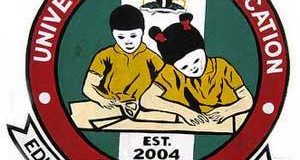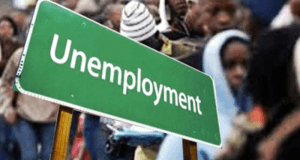Following the directive given to banks in the country to fund their accounts to enable it deduct the reviewed Cash Reserve Requirement within 48 hours, findings have shown that about N7 trillion was taken out of the system.
The CRR had been raised by five per cent from 27.5 per cent to 32.5 per cent as the Monetary Policy Rate (MPR) was raised by 150 basis points to 15.5 per cent from 14 per cent to curb the rising inflation in the country. This is as the Manufacturers’ Association of Nigeria (MAN) has lamented that with the increment in MPR, the hope for a single digit lending rate for the productive sector has been dashed.
The governor of the Central Bank of Nigeria (CBN), Godwin Emefiele, had last week expressed the determination of the apex bank to curb money supply as a measure to combat inflation which has risen to 20.5 per cent as of August this year. Rising from the 287th MPC meeting on Tuesday last week, Emefiele gave banks 48 hours to fund their accounts to enable the effect the reviewed CRR.
The CBN governor said, “To the banks, we have increased the CRR and we expect that this decision at this meeting must be seen to be potent and must achieve the effect that the MPC thinks it should achieve. We expect that all the banks in Nigeria must fund their accounts by Thursday, which is 48 hours, because we will debit them for CRR. We will take their CRR of a minimum of 32.5 per cent which means that we are going to take liquidity out of their vaults by Thursday.
“If any bank fails to meet up with this expectation, the decision of the MPC is that we may need to preclude those banks from foreign exchange market on Friday and onwards until they meet this 32.5 per cent. This message is to underscore the fact that MPC is taking this very aggressive decision to rein in inflation must yield result.
“We do not want to face Nigerians in the next few months and we begin to take the blame for not being able to rein in inflation in spite of all the rates that we have raised. So, we have decided to adopt a two-pronged approach: increase in MPR to see interest rates go up, and secondly CRR going up to mop liquidity effectively out of the vaults of the banks.
LEADERSHIP’s findings reveal that, to this effect about N7 trillion had been taken out of the banking system. However, analysts say they expect interbank rates to spike with the withdrawal of liquidity by the CBN. Overnight rate at the interbank closed last week higher at above 16 per cent despite inflow of funds from Open Market Operations (OMO) maturities and Primary Market Auctions (PMA) repayments.
Speaking on the decisions, manufacturers noted that the increase in the two monetary parameters, MPR and CRR, portends worrisome negative consequences for the manufacturing sector, as increased cost of borrowing by manufacturers, further beyond the extant double-digit rate, disincentivises new investments in the sector and increases costs which feed into high product prices, making the sector uncompetitive, among others.
Director-general of MAN, Segun Ajayi-Kadir, said in consideration of the prevailing scenario around increase in interest rate and access to funds, tougher times are ahead for the productive sector.
He noted that the increase in MPR from 14 per cent to 15.5 per cent will rub off negatively on other rates and dash the hope for a single digit lending rate for the productive sector in the economy.
Ajayi-Kadir observed that continuous contractionary monetary policy posture without complementary fiscal support may not effectively reduce the prevailing inflationary pressure on the economy, saying this is not unconnected with the fact that the current increase in Consumer Price index as reported by NBS is not largely driven by monetary phenomenon, as self-inflicted weak foreign exchange rate management can be linked to the pressure.
He pointed out that “an experiential x-ray of the prevailing economic stance revealed that domestic output gap due to the inefficiency of the macroeconomy, unguided industry development, inclement and high-cost operating environment, exploitative regulatory ecosystem and some externalities are predominantly responsible for the rising inflation that the nation is experiencing.”
The MAN DG called for the monetary authority to strategically set in motion mechanisms for holistic balancing of the real interest rate, which is critical to investment and not just following leading economies to adjust interest rate without considering domestic peculiarities.
“Interest rate (MPR), inflation and exchange rate are triadically critical to investment and production. Balancing the rates in line with local aspiration is therefore imperative. Regrettably, at the moment, other contributory factors, like insecurity and externalities-induced food shortage, government’s excessive drive for internally generated revenue, increase in interest rate in the US, unsustainable and unpragmatic interventions in the forex market, the acute shortage of forex and unfriendly exchange rates are not only fueling inflation, but seriously depressing industrial production,” he said.
He expressed hope that the CBN will creatively go beyond the conventional monetary management system, as he recommended upscaling the current efforts at improving the availability of development-oriented funds at single digit interest rate, prioritizing industries.
“Promote a more robust production centric forex management and intervention in official forex market, leveraging on sustained increase in crude oil price in the global market; give priority attention to meeting forex requirements of the industries’ vital inputs that are not available locally, to sustain and ramp up production, among others,” he said.
Analysts at Cordros Securities say they expect system liquidity in the money market to be pressured this week. For analysts at Afrinvest West Africa, “the CRR increase would aid disinflationary moves; banks’ ability to sweat out assets would further be dampened, while the cost of borrowing for businesses would race to new highs.”
 Newsfront Online …Telling the Public as it is
Newsfront Online …Telling the Public as it is




